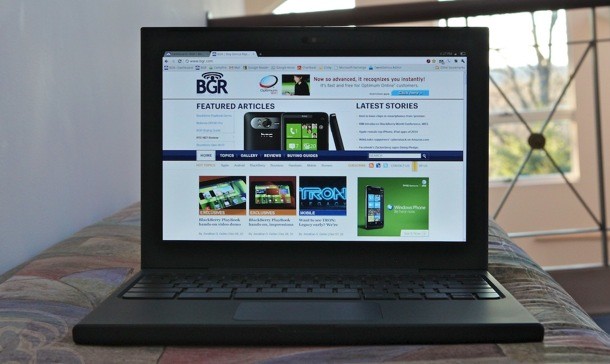By some measures. we're hitting an Internet age that leaves Google behind. But here's a prescription to keep search relevant in the face of Facebook's social empire.
By Kevin Kelleher, contributor
 Being king of the web is a short-lived gig. Only several years ago the web was navigated by search and Google was the clear king of innovation. Now, as the web takes on an increasingly social structure we seem to be heading into the Age of Facebook.
Being king of the web is a short-lived gig. Only several years ago the web was navigated by search and Google was the clear king of innovation. Now, as the web takes on an increasingly social structure we seem to be heading into the Age of Facebook.
By some measures, it will be an age where Google isn't welcome. The company has long been seen as a one-trick pony, gifted at search and little else. It's stumbled again and again in social media with Orkut, Buzz and Wave – efforts that were at best mixed successes. Increasingly, executives and engineers in Silicon Valley openly declare that Google can't beat Facebook at its own game. Underscoring the pessimism, several key employees have bolted Google for Facebook in recent months.
Meanwhile, Facebook is expected to earn $3.2 billion in revenue next year, mostly from online ads – which is more than Google (NASDAQ:GOOG) makes on display ads alone. Time is running out for Google to find a way to keep its revenue and profit growing. Doing that will mean thriving in social media. While there's not a single strategy that Google can use to reach that goal, there are several approaches that can help. And early signs are that Google is busy taking those steps.
1. Don't copy Facebook.
Copying Google's search engine didn't work for Yahoo (NASDAQ:YHOO), Ask.com or Microsoft (NASDAQ:MSFT) – it only made clearer that they were laggards. Besides, Orkut was Google's attempt to copy Friendster and MySpace, and while Orkut was popular in India and Brazil, it never gained traction elsewhere.
Instead, Google would be smarter to study how people are behaving as the web evolves and then anticipating how the social web will operate in the future. Google hasn't offered too many details on what kind of social features it's building, but CEO Eric Schmidt has said it won't be a full-on social networking site but a social component built into existing Google products.
This approach has its risks as well. Google has a large installed base of users with, for example, Gmail. Google Buzz, a second-generation social network, failed in good part because of how Google handled the importing of Gmail contacts into Buzz connections.
Since Buzz, Google went back to its drawing board. Since then, one of the worst-kept secrets in Silicon Valley has been what a project called Google Me, an ambitious effort not to launch a new service like Buzz, but to incorporate a social element into all the services associated with a Google account – documents, calendars, photos on Picasa, videos on YouTube. Throw in the Google Music store it's long been planning as well as the ebooks for sale on the newly announced Google Editions and there starts to emerge a critical mass of services that a social layer could be built upon.
2. Focus on Facebook's weaknesses.
A few months ago, a 224-page Powerpoint presenation by a member of Google's user-experience team made the rounds. It thoughtfully made the case that our online identities aren't one-dimensional, that we all interact differently at work, with family, with friends, etc., and that social networks don't reflect that complexity. The presentation was seen as a vulnerability of Facebook that Google could attack.
Facebook responded quickly with Groups, which lets users share different content with various groups of friends. But Google had made its point: Facebook can't do everything, and there is room on the web for different approaches to social media. It made clear that Google would try to focus its strengths on Facebook's weaknesses.
It also explains why Schmidt takes every opportunity he can to swear that Google takes privacy seriously. He's not just regretting the privacy brouhaha that greeted the launch of Buzz, he's taking aim at the loudest and most consistent complaint about Facebook – its cavalier attitude toward privacy.
Facebook has pushed our comfort levels on privacy for a long time. Zuckerberg has argued that in time we'll all grow to accept that there is no privacy anymore on the web. But the reality is, as I've argued before, Facebook can't make its social ads pay without collecting and sharing as much personal data as it does.
3. Invest in a customer base.
So what does Google do if it builds a social component throughout its myriad products and nobody uses it? That was the problem with Wave, a well-designed tool for real-time collaboration that Google quietly killed this summer.
In fact, it's the Catch-22 that fells many social sites: Nobody wants to sign up unless their friends sign up, and their friends don't sign up because their own friends haven't signed up...
To start a fire under its social offerings, Google may become aggressive in buying startups with a strong social bent. It approached Yelp with little success, and is often mentioned as a suitor for Twitter. This week, Google is reportedly talking with Groupon, a deal-of-the-day site with a loyal customer base.
Viewed from one angle these deals don't make sense because many users of a site bought by Google are already Google users. But from another angle, that's the beauty of it. If Google owned Twitter, say, then users might start interacting with each other in Picasa, or documents. Google has the cash to keep buying other startups – a music site with social connections like Spotify or Mog, for example – until it can nurture a viable user base for its social layer.
It's too early to count Google out of the social web. Its failures in the field to date are ominous only if Google hasn't learned from them. It needs to do a lot of things right to succeed, but if it does, then we may not be calling this the Age of Facebook for very long.
http://tech.fortune.cnn.com/2010/12/06/how-google-can-thrive-in-the-age-of-facebook/









